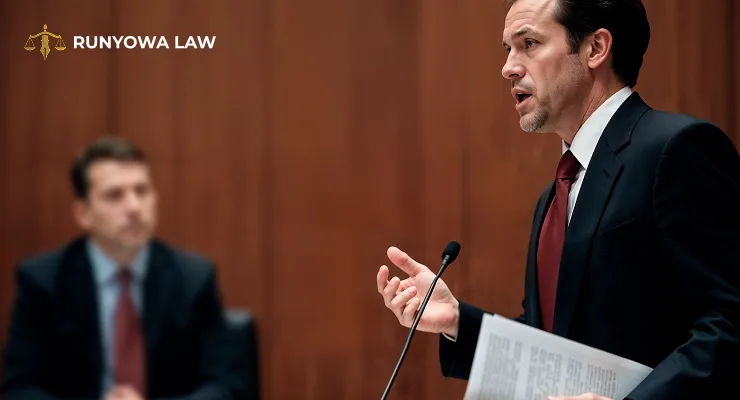Losing a loved one due to someone else’s negligence is devastating. On top of grief, families often face financial and emotional burdens. Filing a wrongful death claim can help hold the responsible party accountable and secure compensation. But one question often arises: how long do wrongful death claims take to resolve? The answer isn’t simple—it depends on various factors. This guide will explore the typical timeline, factors affecting resolution, and what families can expect throughout the process.
Understanding Wrongful Death Claims
A wrongful death claim is a civil lawsuit filed by the surviving family members or the estate of a deceased person. These claims generally arise when someone dies due to another party’s negligence, intentional acts, or strict liability situations, like defective products. Compensation in wrongful death cases usually covers medical expenses, funeral costs, lost income, loss of companionship, and sometimes punitive damages.
Knowing the legal process helps families understand why wrongful death claims can take months or even years to resolve.
The Typical Timeline for Wrongful Death Claims
There is no fixed timeline for wrongful death claims. Each case is unique, and several factors can affect how long it takes. However, most cases follow these general stages:
1. Initial Investigation and Case Assessment
After the death occurs, families usually consult with a wrongful death attorney. The attorney will review the case, collect evidence, and determine whether there is a valid claim. This stage often takes a few weeks to a couple of months, depending on the complexity of the situation.
During this period, your lawyer may gather medical records, police reports, witness statements, and other crucial documents.
2. Filing the Complaint
Once your attorney confirms a valid claim, a formal complaint is filed in civil court. The complaint outlines the allegations and the damages sought. Filing can happen relatively quickly, often within a few months of the initial consultation.
After filing, the defendant is served, and the legal timeline officially begins.
3. Discovery Phase
Discovery is often the longest stage in a wrongful death claim. Both parties exchange evidence, take depositions, and may issue subpoenas to gather relevant documents.
- Length: Discovery can take 6 months to 2 years, depending on case complexity.
- Factors: Number of witnesses, medical records, expert reports, and insurance company involvement can slow this process.
4. Settlement Negotiations
Many wrongful death claims are resolved through settlements before going to trial. Your attorney may negotiate with the defendant or their insurance company to reach a fair agreement.
- Length: Settlement discussions may take a few months or longer if negotiations stall.
- Factors: Insurance limits, evidence strength, and willingness to settle all play a role.
Settlements can save time, reduce costs, and provide compensation more quickly than a trial.
5. Trial
If a settlement cannot be reached, the case proceeds to trial. Trials in wrongful death cases can be complex and emotionally taxing.
- Length: Trials usually last a few days to a few weeks, but pre-trial motions and preparation can add several more months.
- Factors: Court schedules, number of witnesses, and the complexity of the case affect trial duration.
After the trial, the judge or jury issues a verdict. If the defendant loses, they may appeal, which can further extend the timeline.
6. Appeals
Appeals are common in civil litigation, especially in cases involving significant compensation. An appeal can add months or even years to the process.
Factors That Affect How Long Wrongful Death Claims Take
While the stages above give a general idea, several factors influence the timeline:
1. Case Complexity
Cases with multiple defendants, complex medical evidence, or disputed liability take longer. Simple cases with clear evidence can settle much faster.
2. Insurance Company Tactics
Insurance companies sometimes delay settlement or request extensive documentation to reduce payouts. These tactics can extend the resolution time significantly.
3. Court Schedules and Backlogs
Courts with heavy caseloads may delay hearings, motions, and trials. This can add months or even years to the timeline.
4. Need for Expert Witnesses
Medical experts, accident reconstruction specialists, and economists are often required in wrongful death cases. Scheduling and obtaining their reports can take time.
5. Negotiation and Settlement Complexity
Even when a case is straightforward, reaching a fair settlement can be prolonged if the parties cannot agree on compensation amounts.
Can Wrongful Death Claims Be Resolved Faster?
Yes, but it depends on the circumstances. Some strategies that can shorten the timeline include:
- Hiring an experienced attorney who can gather evidence efficiently and negotiate effectively.
- Keeping organized documentation to streamline discovery.
- Being open to early settlement discussions when reasonable.
- Avoiding unnecessary delays in responding to requests from attorneys or courts.
Despite these measures, families should understand that wrongful death claims take time. Rushing the process can reduce the compensation or weaken the case.
Emotional Considerations
The emotional toll of a wrongful death claim is significant. Families often feel impatient and frustrated by delays, especially when dealing with grief and financial pressures. Knowing the expected timeline and factors affecting the process can help manage expectations.
Counseling and support groups can also provide guidance during this challenging period.
FAQs
Q1: What is the average time for a wrongful death claim to settle?
Most wrongful death claims take 1 to 3 years, depending on complexity, evidence, and settlement negotiations.
Q2: Can a wrongful death claim be resolved without going to trial?
Yes, many claims are settled before trial, which can reduce the timeline significantly.
Q3: Does filing a claim immediately speed up resolution?
Filing promptly helps start the legal process sooner but doesn’t guarantee a faster resolution due to discovery, negotiations, and court schedules.
Q4: How do appeals affect the timeline of a wrongful death claim?
Appeals can extend the case by months or years, as higher courts review decisions and issue rulings.
Q5: What role does an attorney play in speeding up a wrongful death case?
An experienced attorney manages evidence collection, negotiations, and court filings efficiently, which can prevent unnecessary delays and protect your claim.
Conclusion
Wrongful death claims vary in duration, typically taking 1 to 3 years from initial consultation to resolution, though complex cases may take longer. Understanding the stages—from investigation to potential appeals—and the factors that affect timelines can help families prepare for what lies ahead.
While the process is often long and emotional, working with an experienced wrongful death attorney can ensure the case progresses efficiently and that your loved one’s legacy is protected through fair compensation.




